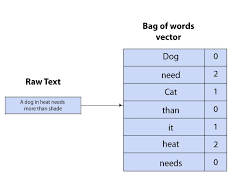Content Marketing Lessons: Beyond Creativity
Content marketing requires more than just creativity; it demands a strategic approach rooted in collaboration, consistency, and data-driven insights. Salesforce, a leader in customer relationship management, exemplifies how to revolutionize content marketing to achieve meaningful business outcomes.
Centralize Content Strategy for Consistency
One of the key takeaways from Salesforce’s content marketing evolution is the power of centralization. Jessica Bergmann, Vice President of Content and Customer Marketing at Salesforce, led a shift that elevated content marketing to a strategic function within the company.
By centralizing content operations, Salesforce ensured consistency in voice, tone, and messaging across all channels. This centralization wasn’t about controlling content but about creating a unified narrative that resonates with customers at every touchpoint.
Empower Teams with Strategic Roles
To bridge the gap between audience needs and Salesforce’s business objectives, Jessica introduced two pivotal roles: content strategists and editorial leads.
These roles are embedded within brand, persona, and industry teams, ensuring content aligns with business goals and is tailored to the specific needs of different customer segments. This approach underscores the importance of empowering teams with the right expertise and tools to deliver impactful content.
Leverage Technology for Seamless Operations
Salesforce’s centralized content operations team plays a crucial role in managing the company’s content ecosystem. By utilizing a central content operations tool, the team oversees real-time editorial calendars, workflows, and a global measurement dashboard.
This technological foundation allows Salesforce to streamline content production and maintain a cohesive strategy across its global teams. For any organization aiming to scale content marketing efforts, investing in the right technology is essential.
Integrate Cross-Functional Collaboration
A key to Salesforce’s success is its emphasis on cross-functional collaboration. By working closely with product marketing, creative, and campaigns teams, the content marketing function at Salesforce is integral to the broader marketing strategy.
This integrated approach ensures content is not created in isolation but as part of a larger, cohesive effort to educate customers and drive business growth.
Measure What Matters
In content marketing, measurement is everything. Salesforce’s content performance dashboard provides visibility into how content is performing across the organization.
By tracking metrics like traffic, engagement, and progression, Salesforce ensures its content efforts align with business objectives. This focus on actionable metrics helps teams make informed decisions about optimizing, promoting, or cutting content.
Prioritize Strategic Initiatives
Salesforce’s ability to manage multiple high-impact projects, such as Dreamforce, Salesforce+, and the #TeamEarth campaign, demonstrates its strategic prioritization process.
Using the V2MOM framework (vision, values, methods, obstacles, and measures), Salesforce aligns its content marketing efforts with the company’s broader goals. This structured approach allows Salesforce to allocate resources effectively and ensure content initiatives deliver maximum impact.
Focus on Audience-First Content
At the heart of Salesforce’s content marketing strategy is an unwavering focus on the audience. By adopting an “audience-first” mindset, Salesforce’s content teams strive to create content that addresses customer needs while earning the right to market to them.
This approach is crucial in today’s content-saturated environment, where businesses must offer genuine value to stand out.
Develop Long-Range Content Plans
Content marketing isn’t just about quick wins; it’s about building long-term relationships with your audience. Salesforce’s commitment to long-range content planning, integrating thought leadership, search, and editorial efforts, ensures the company remains top-of-mind for customers throughout their buying journey.
This long-term focus is key to nurturing leads and converting them into loyal customers.
Invest in Content Marketing Talent
Hiring the right talent is vital for a successful content marketing strategy. Salesforce’s experience highlights the importance of bringing in content marketing experts who can execute the strategy effectively.
These experts bring fresh ideas and ensure the content marketing function is respected and prioritized within the organization.
Show Early Wins to Build Momentum
Finally, one of the most important lessons from Salesforce’s content marketing journey is the value of showcasing early wins. By focusing on quick victories that demonstrate the impact of content marketing, Jessica and her team built momentum and secured buy-in from senior leadership.
This approach is essential for any content marketing team seeking to establish itself as a strategic function within the organization.
Conclusion
Salesforce’s content marketing transformation offers valuable insights for businesses at any stage of their content marketing journey. By centralizing content strategy, empowering teams with strategic roles, leveraging technology, and focusing on audience-first content, Salesforce has created a content marketing engine that drives real business results. For organizations looking to elevate their content marketing efforts, these lessons provide a clear roadmap to success.













